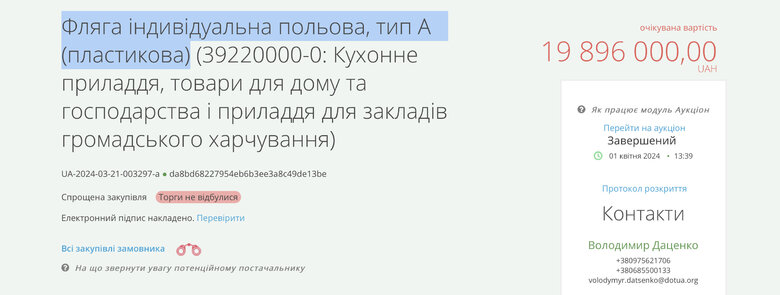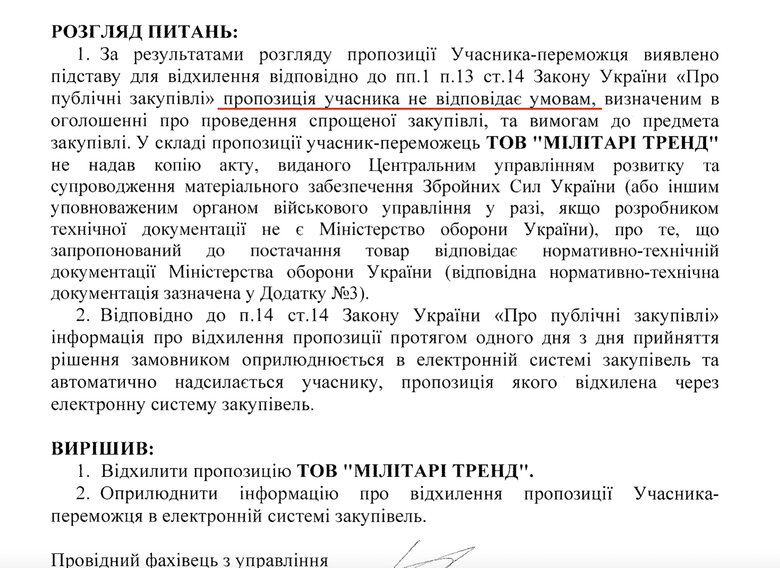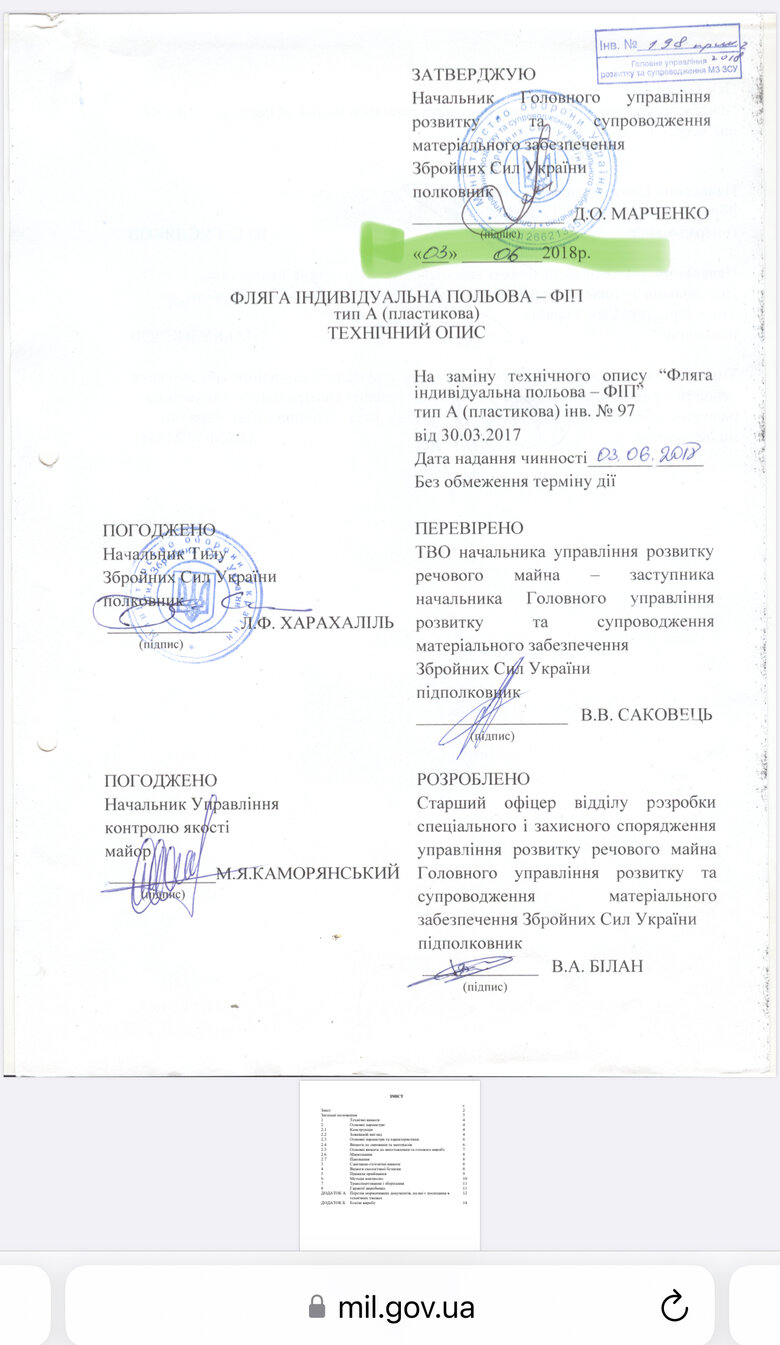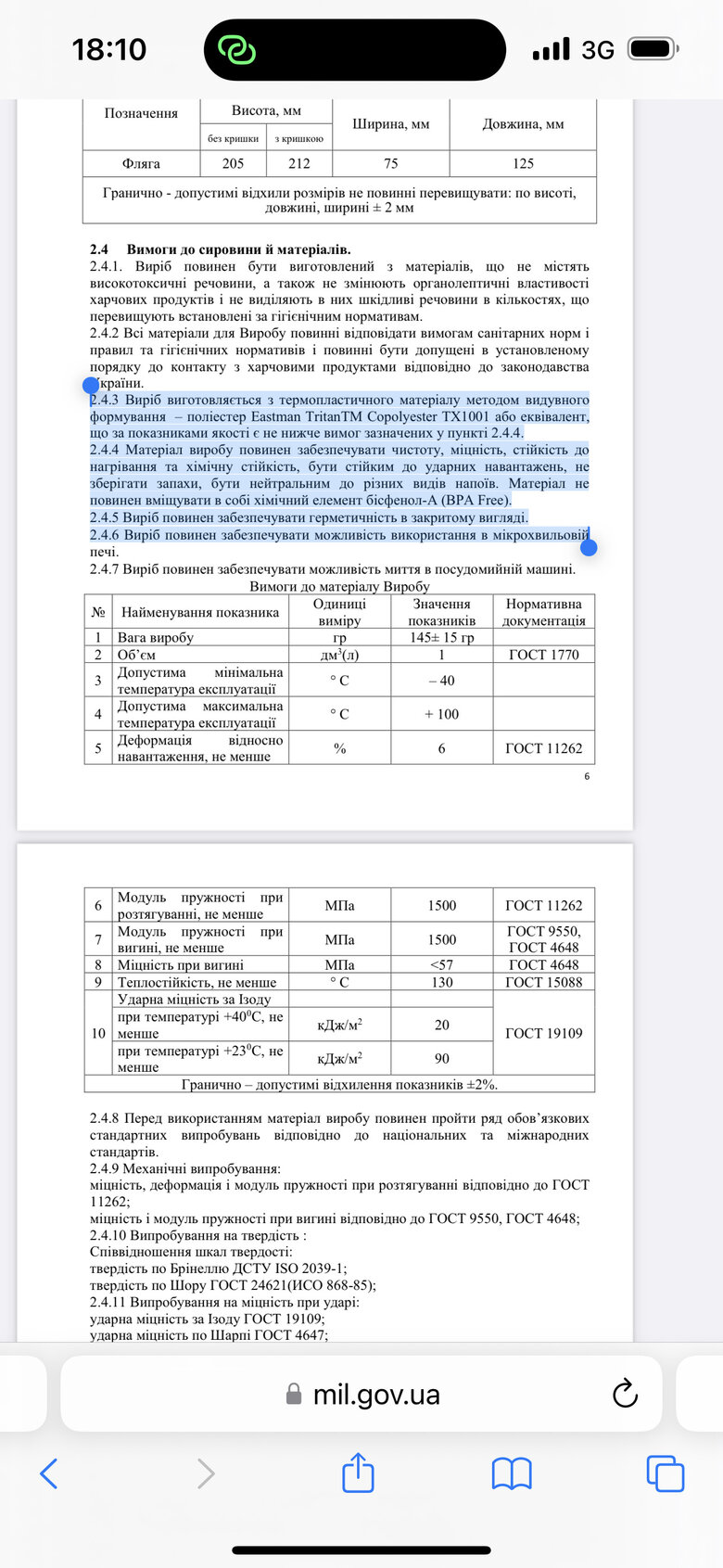Минобороны и новая коррупция? Ну ведь давно скандалов не было. Или все же не все так однозначно?
Вчера на ngl.media вышел материал о ДОТе и закупке фляг за 355 гривен. Авторы сравнили цены в интернете и в закупке Нацгвардии, где по 70 и 150, и решили, что ДОТ таки нехило переплатил.
Переплатил. Но точно ли это измена?
1. заключение договоров по необходимости и прямым договорам не любит никто. Поверьте, ДОТ значительно приятнее отчитываться, сколько он сэкономил и сколько торгов провел в системе Prozorro. Общественному антикорруду легче порыться в торгах в интенете чем вытряхивать договоры силой.
Прямые договоры сразу увеличивают внимание к сделке в разы, так же как и подозрения, что поставщик не просто зашел с улицы. Но бывают случаи, когда звезды становятся раком, Меркурий исключительно ретроградным и без прямых сделок никак. Как во втором квартале с продуктами.
Торги на фляги ДОТ объявлял дважды — в январе и апреле. И если не полениться и зайти на страницу тендера, то можно выяснить, что отменять их должны были, что участники не получили сертификат качества на флягу.


В этом моменте надо сделать существенную ремарку — ДОТ не может купить ничего, даже если оно суперклассное, американское, норвежское, украинское, и на рынке втрое дешевле, если оно не соответствует техническим условиям. Техническую спецификацию под продукт выдает Командование сил логистики (я местами его очень сильно не люблю, но там точно есть нормальные и вменяемые люди).
Например, для ТУ под спальник был взят американский образец (ибо наш тик и не только), и на базе этого распоротого образца были разработаны техусловия.
То есть с этого момента вообще забываем о ДОТе. Он, может, и переплатил, но техусловиям другие не соответствовали.
Идем дальше. В КСЛ и управление качества.
Были ли техусловия прописаны под конкретного производителя? Потому что именно на это намекает нам статья, указывая, что договор заключен с компанией «Колтрейн», которая по сути фирма-однодневка.
Коллеги в плане истории компании не ошиблись, претензий нет. Но те, кто в рамках работы ГАР МО изучил всю родословную кумовьев пищевой мафии, того ничего не удивит. (Кстати, с сегодняшнего дня в харчах стартует новый сезон приема заявок. Говорят, новой звездой сезона будет авокадо. Кто читал статьи о том, что теперь это нерентабельный овощ, тот поймет весь подвох ситюэйшн). Но сегодня о флягах.
Какие бы фирмы какая-то Варвара Немидоровна не регистрировала, подаваться на сертификаты ходят одни и те же люди, и это не подписанты договоров.
Так вот, если бы технические условия были переписаны ну хотя бы в январе, а договоры заключили в июле, мы бы могли говорить о сговоре. Но технические условия написаны в 2018 году. Для них за образец была взята американская фляга.

Согласно этим требованиям фляга должна производиться из термопластичного материала методом выдувного формования — полиэстер Eastman Tritan Copolyester TX 1001 или эквивалент, материал должен обеспечивать чистоту, прочность, устойчивость к нагреванию в микроволновке, не сохранять запахи и не содержать бисфенол-А.

Собственно говоря, именно в требования к этому пластику и упирается вся история. А не в слова «Собственность ВСУ, не для продажи». Потому что такая надпись должна содержаться на всем, что поставляется ВСУ — флягах, куртках, штанах, трусах, лифчиках и спальных мешках.
Кстати, на определенном проценте тех самых скандальных куртках Резникова бирок как раз и не было. Но считать эту надпись дискриминационной нельзя, потому что иначе и раскраивать куртку для армии можно не начинать. Потому что бирка с этой надписью должна быть вшита так, чтобы ее нельзя было ни поверх пришить, ни отодрать без перекроя изделия.
Поэтому у нас остается только один пункт о том, что такую флягу может изготавливать фактически один производитель — Taizhou Huangyan Sigg Mold Co., Ltd.
Насколько удалось узнать автору, этого производителя нашли поставщики, которые продавали для ВСУ всю кухонную утварь. (Еще раз вернемся к вопросу, что не в фирмах вывесках дело, хотя хотелось бы как-то респектабельного брендирования, а не контор «Рога и ракотицы»).
Так вот уже 4 года другие «украинские» производители (я пока промолчу, где шьются те украинские куртки и берцы, но в своем глазу так бревно не видно, как треску в чужих носках) безуспешно пытаются зайти на этот не такой уж и большой сегмент рынка.
Конечно, в версии производителя это звучит, как проклятые коррупционеры продались другим и не пускают нас хороших. А в версии представителей МО это звучит иначе: «А можно нам перестать 4 года таскать одно и то же дерьмо, и сделать нормальный пластик».
Собственно, это единственное место, где стоит провести детальную дискуссию и обсуждение.
Относительно пункта о сделали процедуру под поставщика, то по крайней мере как утверждают мои источники (не в ДОТ!) фляги лежали на складе с 2022 и их обнаружили в результате опроса по рынку. Маркировка о годе выпуска, как убеждают собеседники, есть на изделии.
Так или иначе, статья вызвала резонанс в правоохранительных органах, о чем свидетельствует следующая цитата. «Уже были и с НАБУ, и с ГБР, но вы пришли первая».
А теперь еще один пример из истории о ТУ и заточках. В прошлом году общественный антикоррад при Минобороны провел наверное добрые 4 месяца в дискуссиях, устраивать ли публичный скандал из-за берцев, где есть очевидная монополия «Таланлегпром», которая судя по отзывам конкурентов дебело формировалась благодаря ТУ 17 лет. Но вот те месяцы изучения рынка привели к одному выводу — расширить круг конкурентов можно только убрав из изделия литую подошву, на что не пойдут военные. А изделия других производителей пока выглядят значительно хуже.
Единственное, что тогда удалось сделать — здесь следует отдать должное главе антикордепартамента МО Сергею Степаняну — это добиться отказа Таланлегрома от авторских прав на рисунок протектора.
В случае с флягами выход действительно прост — независимая экспертиза качества. Действительно ли указанные нормы дискриминационные, может ли другой состав быть такого же качества, или это просто сомнительная конкурентная борьба.
А… дарю следующую тему для скандала — сейчас армии не хватает 30% мужских трусов.


